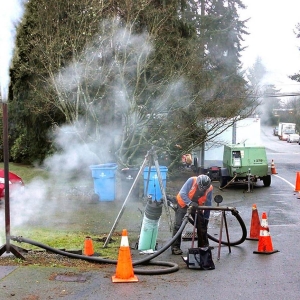The Stream, May 9: Arsenic In Drinking Water May Cause Heart Problems in Young Adults, Study Warns
The Global Rundown
Young people who drink arsenic-contaminated water may be more likely to experience heart problems, a study warns. Only a third of the world’s major rivers are still free-flowing, a new analysis shows. Cholera and other disease outbreaks are feared as the battle for Tripoli, Libya, rages on. Australia’s recent bout of extreme weather could cause a shift in national politics. Zambia’s corn harvest drops to its lowest amount in a decade. Political leaders are slow to act as pollution engulfs India.
“The biggest challenge is gaining a political consensus on recognising the problem and that is something that has eluded our country so far.” –Polash Mukherjee, an employee of the Indian Centre for Science and Environment, in reference to the water, air, and soil pollution that is blighting India. The World Bank estimates that pollution-related healthcare costs Indians $221 billion annually, yet government action on pollution and climate issues is negligible. Al Jazeera
Latest WaterNews from Circle of Blue
HotSpots H2O: Floods, Sanctions, and Shortages Deluge Iran — The Trump administration announced last week that it will no longer provide sanction exemptions to countries importing oil from Iran, a move that could hurt Iran’s economy and impair its capacity to respond to devastating floods that rampaged through the county just weeks ago.
What’s Up With Water – Jakarta, Indonesia’s Sinking Capital — This week’s edition of What’s Up With Water includes coverage on flooding in Iran, low water levels in the Panama Canal, and plans by Washington D.C. to upgrade its flood-prone buildings.
By The Numbers
60,000 People who have fled Tripoli, Libya, in the midst of a month-long battle for the city. The World Health Organization warns that water and sanitation are compromised in and around the embattled city, raising the likelihood of cholera and other waterborne diseases. Reuters
2 million metric tons Size of Zambia’s 2019 corn harvest, the lowest in a decade. The country’s agriculture minister said drought and pests led to the low yield, but that Zambians should have enough food until the next harvest. Bloomberg
Science, Studies, and Reports
A worldwide analysis found that only a third of the planet’s major rivers are still free-flowing. Most large rivers have been dammed, degraded, or diverted in developed areas of the world, a situation that poses danger for the health of humans and wildlife. The Guardian
On the Radar
Consumption of arsenic-tainted drinking water by young adults could lead to a thickening of the heart’s main pumping chambers and subsequent heart problems, according to a new study. Authors of the study warn that testing of private wells is crucial for preventing arsenic exposure. The New Indian Express
Abnormal drought, sweltering heat, and extreme flooding have struck Australia in the past year. With the country’s general elections coming up on May 18, many traditionally conservative voters are considering the platforms of independent candidates as they prioritize issues related to climate change. The New York Times

Kayla Ritter is a recent graduate of Michigan State University, where she studied International Relations and Teaching English to Speakers of Other Languages. She is currently based in Manton, Michigan. Kayla enjoys running, writing, and traveling. Contact Kayla Ritter






Leave a Reply
Want to join the discussion?Feel free to contribute!